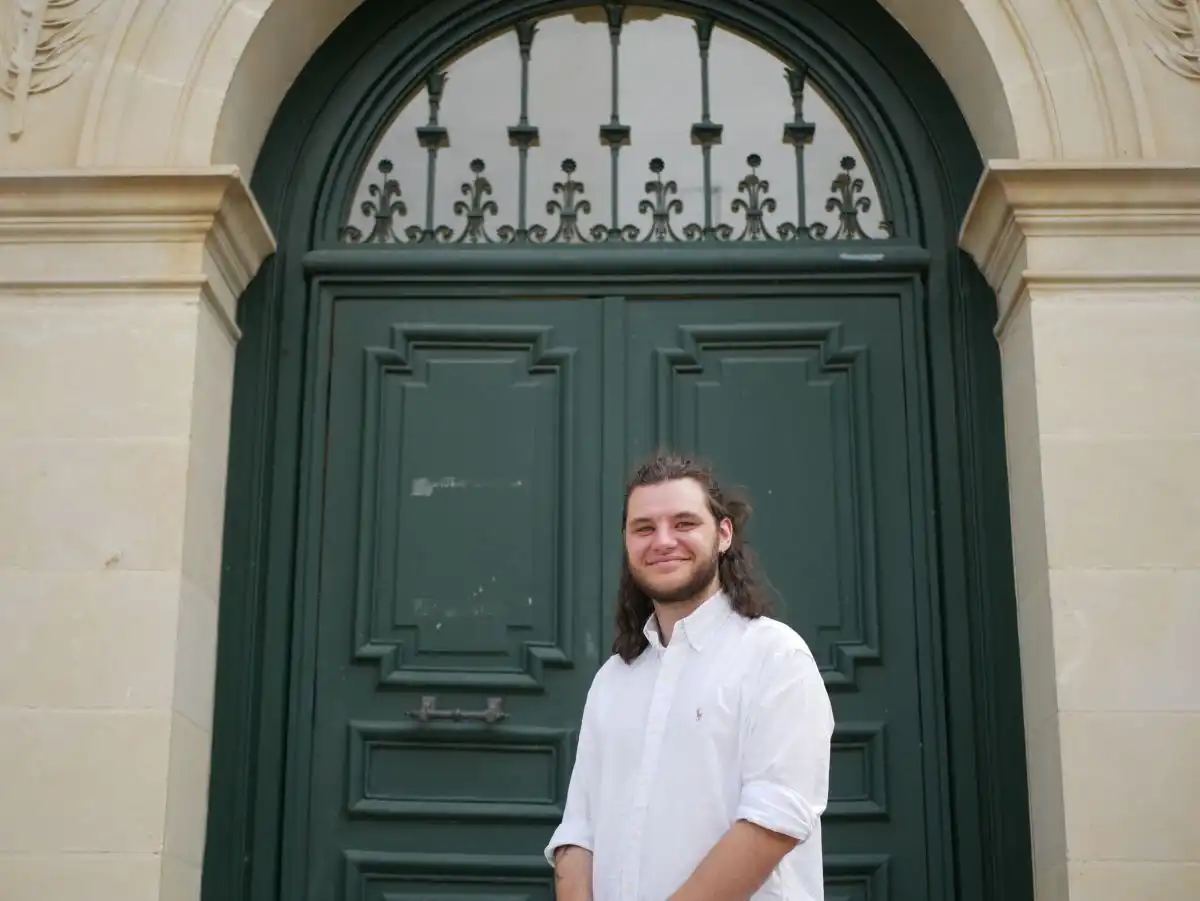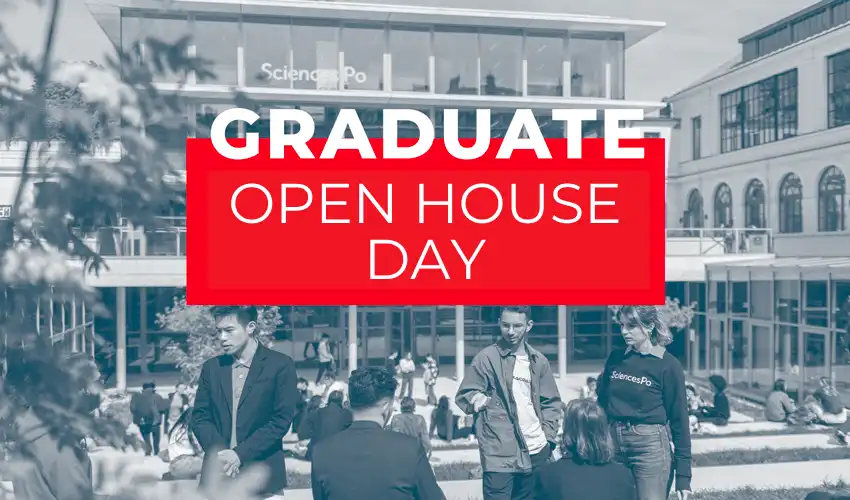Home>Student profile : Valentin Salperwyck
16.07.2024
Student profile : Valentin Salperwyck

What was your background before joining the Urban School?
After my baccalauréat, I did an L1 in Political Science at the Lille 2 Faculty of Law and Political Science. I then sat the IEP entrance exam again and joined Sciences Po Rennes. After a semester at Konstanz University in Germany and a 5-month work placement in an association that runs European projects on local energy transition, I did a year's Master 1 at Sciences Po Rennes on the Europe and World Affairs (EAM) course. After an internship that taught me a lot, and while writing my dissertation on implementing European energy policies in the Brittany region, I wanted to refocus my studies on local socio-ecological transitions. It was this initial desire that led me to GETIC Master's programme.
Why did you choose the Master GETIC?
What I found interesting when I chose GETIC Master’s programme was that it covered a wide range of disciplines, from sociology, history, political science and law to GIS, statistics and social science research methods. All these subjects gravitate around and are applied to issues of ecological transition. This commitment to decompartmentalisation and multidisciplinarity, which has driven me since the beginning of my academic career, appeals to me greatly and makes a lot of sense in the professional world, where all the traditional disciplines must interact and understand each other to solve complex and multifactorial problems such as climate change.
Was there a particular lesson that stood out for you?
I enjoyed some of the teaching, particularly the courses in the joint academic programme, such as Planet Earth, a habitable planet and Ocean and Earth Climate. In my opinion, these courses, which are very much focused on the physical and natural sciences, are an essential complement to my career path, which until now has been more focused on the social sciences. Without requiring a robust scientific background, they provide an open mind in cutting-edge areas and an understanding of natural science methods. This is invaluable for developing relevant and holistic public policies. Other more technical courses, such as statistics and GIS, appealed to me and introduced me to software and a way of thinking that was quite foreign.
What was your experience of the group project?
My capstone project (group project) was unusual in that it brought together three different Masters from the urban school (GETIC, STU and the Cycle d'Urbanisme), 15 students. Our task was to draw up a study of the impact of the Tivoli GreenCity eco-neighbourhood in Brussels, designed by the public developer citydev.brussels, using three different evaluation prisms according to the Masters: users for STU, functional mix for the Cycle and urban metabolism for GETIC. We have also produced an eco-district evaluation matrix, intended to be replicable for other urban projects. This work has been highly formative in two main respects. We worked on themes that were sometimes very new from a scientific point of view, particularly urban metabolism. It was very stimulating to turn the traditional vision of an urban project on its head and take an interest in the exchanges, interactions and integration of the project's flows into its environment. In terms of form, this collective project soon turned out to be more of a 15-person project than three 5-person projects. Project management is a highly collective art, and I don't think there's any better school than coordinating, organising and harmonising 15 people for 9 months.
What are your objectives for the future?
In the future, I'd like to get involved in missions to combat climate change from angles that particularly interest me, such as energy policies, urban metabolism and material sobriety. GETIC's urban approach appeals to me because it's a level at which we can experiment and be radical in our responses to the climate crisis. Thanks to my background, I've always been sympathetic and familiar with the European level. I don't have a precise idea in mind, but my training and my time at GETIC allow me to grasp what I find interesting and what drives me, without really confining myself to a specific field. There are structures in France like ADEME, Anah, Cerema and the OFB that represent for me the excellence of public service and the primacy of the collective interest: that's also what drives me.
Virtual Graduate Open House day, October 2025

On 18 October 2025: meet faculty members, students and representatives and learn more about our 30 Master's programmes.